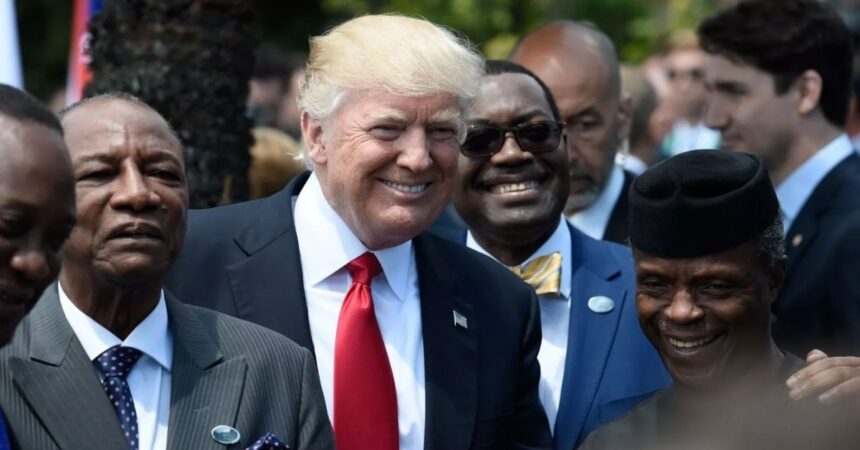President Trump’s recent meeting with South African President Cyril Ramaphosa in the Oval Office sparked a range of reactions in the media, from ‘ambush’ to ‘awkward’. Love him or hate him, Trump excels in projecting power through theatrical displays. His unconventional approach to diplomacy has left many global leaders puzzled, with erratic policies impacting African countries significantly.
The Trump administration’s shift towards private sector deals and commercial diplomacy has led to a decrease in traditional government mechanisms for conducting diplomacy in Africa. This change necessitates a reevaluation of communication strategies for African governments, businesses, and civil society to engage with key stakeholders in the United States.
Tariffs imposed by the Trump administration pose a significant challenge for African countries, especially those benefiting from preferential trade policies like AGOA. Presenting a compelling case for the value of African goods to American consumers is crucial in navigating the impact of tariffs on the continent’s economies.
Climate change remains a pressing issue for Africa, as the Trump administration rolls back environmental regulations and defunds climate-related programs. African leaders must strategically communicate the impact of climate change in Africa to garner support from trade organizations, green technology manufacturers, and sympathetic members of Congress.
To effectively engage with the Trump administration, African leadership must adopt a cohesive and proactive communication strategy. Highlighting Africa’s investment opportunities, infrastructure projects, and strategic importance is essential in gaining traction in Washington D.C. Leveraging digital media, influencer marketing, and partnerships can enhance Africa’s visibility and relevance in American policy circles.
Building relationships with D.C.-based think tanks, congressional offices, and trade committees is key to shaping U.S.-Africa relations in the face of ‘America first’ foreign policy. As South Africa prepares to host the first-ever G20 summit on the African continent and the US-Africa Leader’s Summit approaches, African leaders must seize the opportunity to redefine their engagement with the United States.
In conclusion, navigating the complexities of U.S.-Africa relations under the Trump administration requires a strategic and proactive approach to communication and engagement. By effectively conveying Africa’s priorities and opportunities, African leadership can position the continent as a valuable partner for the United States in a rapidly evolving global landscape.
KARV, a strategic advisory and communications firm based in New York, and Baobab Consulting, a global firm specializing in solutions for organizations investing in Africa’s growth, offer valuable insights and expertise in navigating the challenges and opportunities of U.S.-Africa relations in the current political climate.








